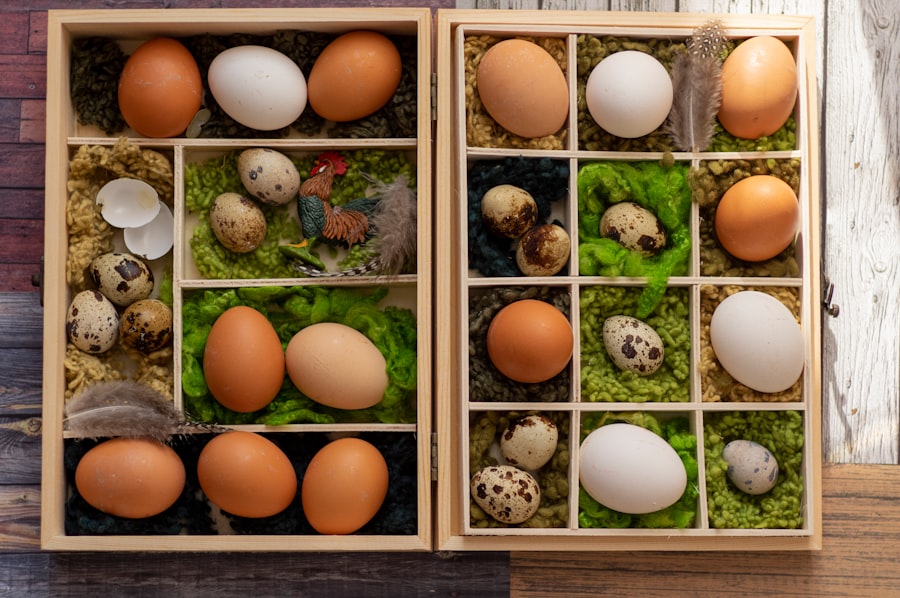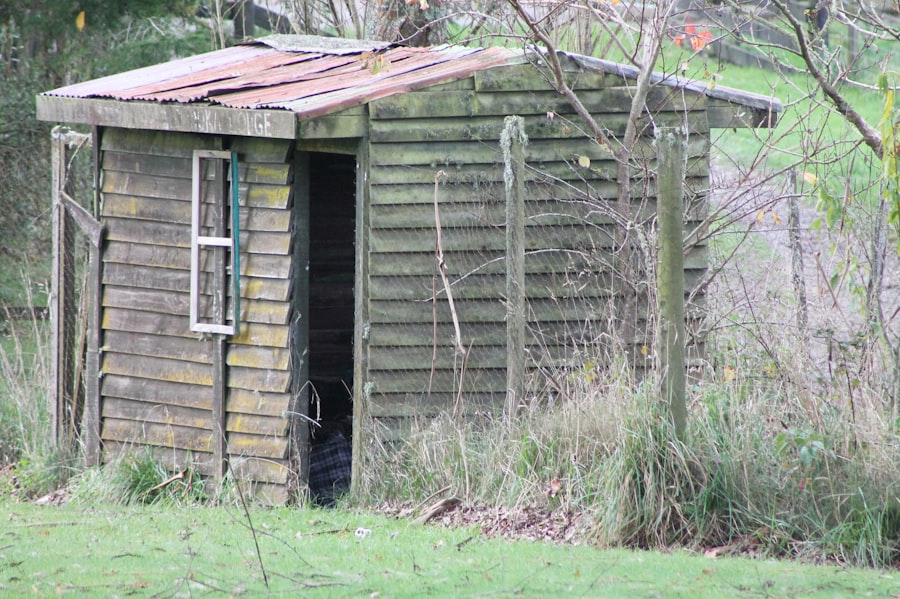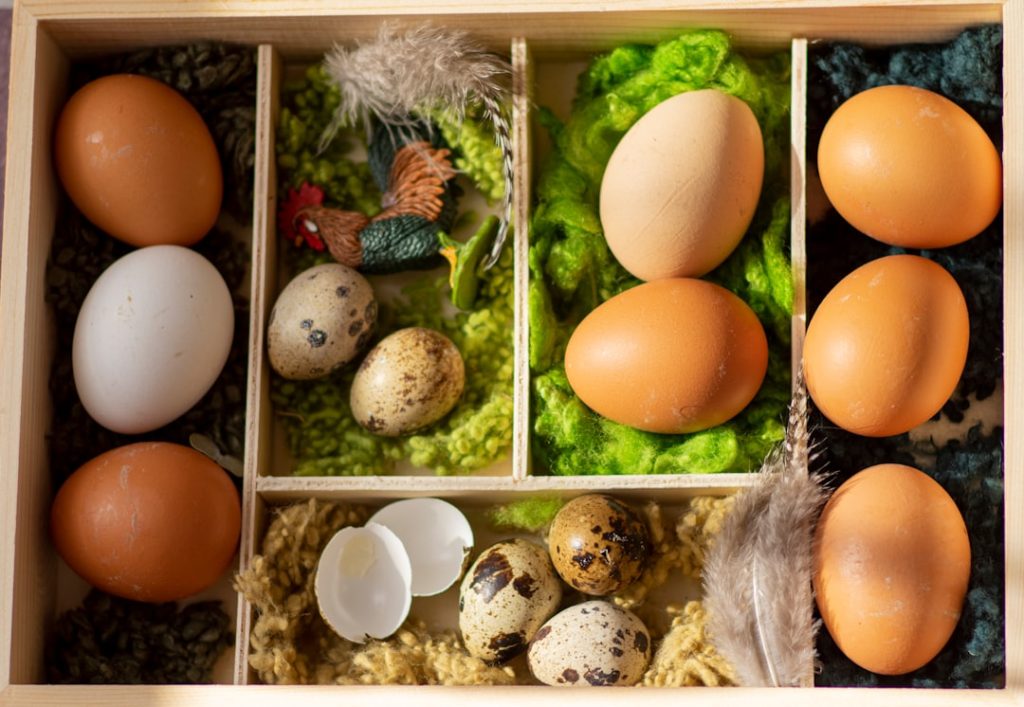Roosting in trees is a natural behavior for many bird species, including chickens. This behavior serves several important purposes. Primarily, it provides chickens with a sense of security and safety from ground-based predators.
Elevated positions allow chickens to maintain vigilance and feel protected during vulnerable nighttime hours. Tree roosting also aids in temperature regulation. Higher positions facilitate better airflow during hot weather, while elevation helps chickens avoid cold ground temperatures in cooler conditions.
This natural thermoregulation contributes to the birds’ overall comfort. The social aspect of roosting is significant for chickens, as they are inherently social animals. Tree roosting allows flock members to huddle together, reinforcing social bonds and promoting overall well-being.
This closeness to flock mates provides a sense of comfort and relaxation for chickens as they settle for the night. Understanding these natural behaviors is crucial for creating suitable roosting environments in domestic settings. Replicating these conditions within a chicken coop can ensure that captive flocks feel safe, comfortable, and secure, mimicking their natural preferences and instincts.
Table of Contents
- 1 Providing Adequate Coop Space and Roosting Options
- 2 Utilizing Deterrents and Barriers
- 3 Implementing Routine Checks and Maintenance
- 4 Creating a Comfortable and Safe Roosting Area
- 5 Ensuring Proper Nutrition and Health
- 6 Seeking Professional Advice if Necessary
- 7 FAQs
- 7.1 What are the reasons for keeping chickens from roosting in trees?
- 7.2 How can I prevent chickens from roosting in trees?
- 7.3 What are the benefits of keeping chickens in a coop at night?
- 7.4 Are there any specific breeds of chickens that are more prone to roosting in trees?
- 7.5 Can roosting in trees affect the egg-laying behavior of chickens?
Key Takeaways
- Chickens roost in trees to avoid predators and feel safe
- Adequate coop space and roosting options are essential for chickens’ well-being
- Deterrents and barriers can help prevent chickens from roosting in unwanted areas
- Regular checks and maintenance of roosting areas are important for chicken health
- Creating a comfortable and safe roosting area is crucial for chickens’ overall well-being
- Proper nutrition and health care are essential for chickens’ roosting behavior
- Seek professional advice if you encounter any issues with chickens’ roosting behavior
Providing Adequate Coop Space and Roosting Options
Coop Space and Flock Size
Ensuring that your chicken coop is spacious enough to accommodate the size of your flock is crucial. Overcrowding can lead to stress, aggression, and poor health among chickens, so providing enough space for them to move around comfortably is essential.
Mimicking the Natural Environment
Having multiple roosting options within the coop can help mimic the natural environment of roosting in trees. Providing different levels of roosts at varying heights can give your chickens the opportunity to choose their preferred spot and feel more secure while roosting.
Roost Material and Design
Natural wooden roosts are often preferred by chickens as they mimic the texture and feel of tree branches. Ensuring that the roosts are wide enough for chickens to comfortably perch on and have rounded edges to prevent injury is also crucial. Additionally, providing enough space between roosts can prevent overcrowding and potential conflicts among flock members.
By offering a variety of roosting options and ensuring adequate coop space, you can create a comfortable and secure environment for your chickens to roost in.
Utilizing Deterrents and Barriers

If you want to discourage your chickens from roosting in trees and encourage them to roost within the coop, utilizing deterrents and barriers can be an effective strategy. One method is to trim the lower branches of trees near the coop to make it more difficult for chickens to access them. This can help redirect their roosting behavior back into the coop.
Additionally, installing physical barriers such as wire mesh or netting around the base of trees can prevent chickens from perching on them. This can be particularly useful if there are specific trees that you want to protect from damage caused by roosting chickens. Another effective deterrent is to make the coop a more attractive roosting option than the trees.
This can be achieved by ensuring that the coop is well-ventilated, comfortable, and secure. Adding cozy bedding material such as straw or wood shavings on the roosts can make them more inviting for chickens to settle down on. Providing adequate lighting within the coop during the evening hours can also encourage chickens to roost inside rather than seeking out trees.
By utilizing deterrents and barriers, you can effectively steer your chickens towards roosting within the coop and away from trees.
Implementing Routine Checks and Maintenance
To ensure that your chicken coop remains a suitable roosting environment, implementing routine checks and maintenance is essential. Regularly inspecting the condition of the roosts, coop structure, and surrounding area can help identify any potential issues that may affect your chickens’ roosting behavior. Check for any signs of wear and tear on the roosts, such as splintering or loose fittings, and repair or replace them as needed to prevent injuries to your flock.
Additionally, inspect the coop for any gaps or openings that may allow predators to access the roosting area and make necessary repairs to ensure the safety of your chickens. Maintaining cleanliness within the coop is also crucial for creating a comfortable roosting environment. Regularly removing soiled bedding, droppings, and debris from the coop floor and roosts can help prevent the buildup of bacteria and parasites that may affect your chickens’ health.
Providing fresh bedding material on the roosts and floor can contribute to a clean and hygienic environment for your flock to roost in. By implementing routine checks and maintenance, you can ensure that your chicken coop remains a safe, comfortable, and inviting space for your chickens to roost in.
Creating a Comfortable and Safe Roosting Area
Creating a comfortable and safe roosting area within the coop is essential for promoting healthy roosting behavior among your flock. One way to achieve this is by providing adequate ventilation within the coop. Good airflow can help regulate temperature, reduce moisture buildup, and prevent the accumulation of ammonia from chicken droppings, which can be harmful to their respiratory health.
Ensuring that the coop is well-ventilated can contribute to a comfortable roosting environment for your chickens. Another important aspect of creating a comfortable roosting area is providing suitable bedding material on the roosts. Soft bedding such as straw or wood shavings can offer cushioning and insulation for your chickens while they roost.
It’s important to regularly replace soiled bedding with fresh material to maintain cleanliness and comfort within the coop. Additionally, providing enough space on the roosts for each chicken to perch comfortably without overcrowding is crucial for their well-being. Ensuring that the roosts are positioned at varying heights within the coop can also provide chickens with options to choose their preferred spot based on their social dynamics and individual preferences.
By creating a comfortable and safe roosting area within the coop, you can encourage healthy roosting behavior among your flock.
Ensuring Proper Nutrition and Health

Nutritional Needs
Ensure that your chickens have access to a high-quality feed that is formulated specifically for their age, breed, and purpose (e.g., laying hens or meat birds).
Hydration and Health Checks
Additionally, offering access to fresh water at all times is crucial for hydration and overall health. Regular health checks and preventative measures can also contribute to promoting healthy roosting behavior among your flock. Monitor your chickens for any signs of illness or injury that may affect their ability to roost comfortably.
Preventative Measures
Implement a regular deworming program as recommended by a veterinarian to prevent parasitic infestations that may impact their health and behavior. Providing appropriate shelter from extreme weather conditions such as excessive heat or cold is also important for maintaining their health and comfort. Ensuring proper nutrition and health care for your flock can contribute to their overall well-being and promote healthy roosting behavior within the coop.
Seeking Professional Advice if Necessary
If you encounter challenges with promoting healthy roosting behavior among your flock or have concerns about their well-being, seeking professional advice from a veterinarian or experienced poultry specialist can be beneficial. A professional can provide valuable insights into understanding your chickens’ behavior, identifying potential issues within the coop environment, and offering tailored recommendations for promoting healthy roosting habits. Additionally, consulting with professionals can help address any specific health concerns or medical conditions that may be affecting your flock’s ability to roost comfortably.
They can provide guidance on implementing preventative measures, dietary adjustments, or environmental modifications that may contribute to improving your chickens’ overall well-being. Furthermore, seeking professional advice can also be beneficial if you are considering making significant changes to your coop setup or management practices in order to promote healthy roosting behavior among your flock. A professional can offer personalized recommendations based on their expertise and experience with poultry care.
In conclusion, understanding the natural reasons for roosting in trees, providing adequate coop space and roosting options, utilizing deterrents and barriers, implementing routine checks and maintenance, creating a comfortable and safe roosting area, ensuring proper nutrition and health, and seeking professional advice if necessary are all important factors in promoting healthy roosting behavior among your flock. By considering these aspects and taking proactive measures, you can create an environment that encourages your chickens to roost within the coop while ensuring their overall well-being and comfort.
If you’re looking for more tips on keeping chickens, you might also be interested in an article on how many chickens you need for a family of 4. This article from Poultry Wizard provides helpful information on determining the right number of chickens to meet your family’s egg needs. Check it out here.
FAQs
What are the reasons for keeping chickens from roosting in trees?
Chickens roosting in trees can be at risk of predators, exposure to harsh weather, and difficulty in monitoring their health and well-being. Additionally, their droppings can create a mess and potential health hazards.
How can I prevent chickens from roosting in trees?
To prevent chickens from roosting in trees, you can provide them with a secure and comfortable coop with roosting bars, close the coop at night, and trim the lower branches of trees to discourage them from perching.
What are the benefits of keeping chickens in a coop at night?
Keeping chickens in a coop at night provides them with protection from predators, shelter from harsh weather conditions, and allows for easier monitoring of their health and well-being.
Are there any specific breeds of chickens that are more prone to roosting in trees?
While individual chicken behavior can vary, some breeds, such as jungle fowl or game birds, may have a natural inclination to roost in trees due to their wild ancestry.
Can roosting in trees affect the egg-laying behavior of chickens?
Roosting in trees may disrupt the natural egg-laying behavior of chickens, as they may feel less secure and comfortable, leading to a decrease in egg production.
Meet Walter, the feathered-friend fanatic of Florida! Nestled in the sunshine state, Walter struts through life with his feathered companions, clucking his way to happiness. With a coop that’s fancier than a five-star hotel, he’s the Don Juan of the chicken world. When he’s not teaching his hens to do the cha-cha, you’ll find him in a heated debate with his prized rooster, Sir Clucks-a-Lot. Walter’s poultry passion is no yolk; he’s the sunny-side-up guy you never knew you needed in your flock of friends!







